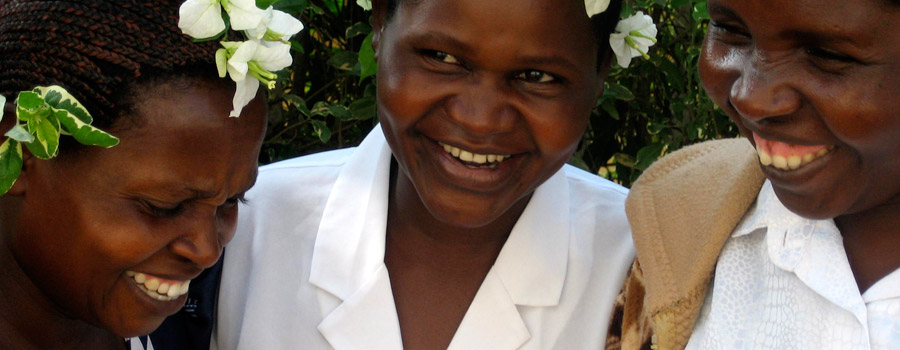Technical Briefs
A Collaborative Network to Improve Access to Fistula Treatment in Nigeria
This brief describes the pooled effort strategy that the Nigeria team has been leading to expand access to fistula repair services.
Files: English (PDF, 3.9MB) and French (PDF, 599KB)
Beyond Repair: Involving Communities in Fistula Prevention and Reintegration—Experience from Kissidougou, Guinea
This brief discusses engaging local government and community members in treatment and prevention of fistula and reintegration of fistula survivors.
Files: English (PDF, 1.7MB) and French (PDF, 3.3MB)
Community-based Screening for Obstetric Fistula in Ebonyi State
In 2007, the Mother and Child Care Initiative (MCCI) was launched in Ebonyi State, Nigeria, under the leadership and support of the governor’s wife, the Honorable Mrs. Josephine Elechi. In 2008, prior to the construction of a new obstetric fistula center in the state, MCCI coordinated with local governments to deploy a specialized medical team to conduct community-based screening for obstetric fistula throughout Ebonyi State, to estimate the potential backlog of women needing fistula repair surgery. This technical brief describes the planning process for the community screening and the results of this effort.
Files: English (PDF, 981KB) and French (PDF, 1.2MB)
Creating an Enabling Environment for Fistula Prevention and Treatment in Uganda
In 2003, the Ugandan Ministry of Health established a Fistula Technical Working Group (FTWG). This technical brief explains the rationale behind creating the FTWG, describes how it came into being, and presents three important achievements of the Ministry of Health and the FTWG: building an information base for obstetric fistula to better plan for and manage prevention, treatment, and reintegration services; integrating fistula services into the Ugandan health system; and establishing standards, guidelines, and protocols to guide services.
Files: English (PDF, 4.5MB) and French (PDF, 2.1MB)
Fistula Pre-Repair Center Model in the Amhara Region of Ethiopia
This brief provides readers with an overview of U.S. Agency for International Development (USAID) support to three pre-repair centers in the Amhara Region that are part of a partnership with the Amhara Regional Health Bureau and the Bahir Dar Hamlin Fistula Hospital.
Files: English (PDF, 466KB) and French (PDF, 638KB)
Improving Partograph Use in Uganda through Coaching and Mentoring
Fistula Care promotes correct and consistent use of the partograph as one of its key fistula prevention interventions. Since 2010, Fistula Care has collaborated with the Reproductive Health Department of the Ugandan Ministry of Health to strengthen partograph use. This technical brief describes the challenges and achievements of developing and implementing a new approach to support partograph use in five facilities across three districts and makes recommendations for future partograph programming at the national, district, and facility levels.
Files: English (PDF, 2.2MB)
Increasing Access to Maternity Services in Rural Bangladesh: Sustainable Facility-Community Links
The Ad-din Hospital for Women and Children and the LAMB Project in Bangladesh have established community-level services for women in rural, underserved communities. This technical brief describes their noteworthy programs, which ensure community ownership and sustainability. One program is integrated into a microfinance program to enable financial independence; the other empowers community members to truly own and manage its services.
Files: English (PDF,
1.1MB) and French (PDF, 1.2MB)
Integrating Fistula Treatment and Prevention: The Launch of a Maternity Unit in Sierra Leone
The Aberdeen Women's Centre maternity unit began offering delivery services in May 2010. Its dedicated staff provide hundreds of women with high-quality maternity services each year. This brief details the challenges of opening a maternity center and the factors that have led to the success of the clinic.
Files: English (PDF, 2.26MB) and French (PDF, 1.6MB)
Living with Obstetric Fistula: Qualitative Findings from Bangladesh and the DRC
What are the social consequences of fistula? What affects how women with fistula are treated? This technical brief provides insights into the experiences of women with fistula in Bangladesh and the Democratic Republic of the Congo. This qualitative research examines the lives of women suffering from fistula in two very different sociocultural contexts, including the physical and social consequences associated with the condition and women’s attempts to obtain care.
Files: English (PDF, 1.0MB)
and French (PDF, 752KB)
Low-Cost Ambulance Network to Provide Access to Maternity Services in Dhaka, Bangladesh
Transportation to skilled maternity care is critical. In 2008, the Ad-din Hospital recognized that many women in Dhaka were unable to access emergency obstetric care and established a low-cost ambulance service. This technical brief describes how Ad-din uses mobile phones and global positioning system (GPS) tracking to manage a fleet of ambulances stationed throughout the city.
Files: English (PDF,
736KB) and French (PDF, 781KB)
Making Mobile Phones Work for Women with Fistula: The M-PESA Experience in Kenya and Tanzania
This brief discusses the work of the Freedom from Fistula Foundation in Kenya and Comprehensive Community Based Rehabilitation in Tanzania. Both programs use an innovative combination of mobile banking and community education to provide free fistula treatment to women who need it.
Files: English (PDF, 2.2MB) and French (PDF, 665KB)
![[ Skip Navigation ]](../../data/images/c.gif)



